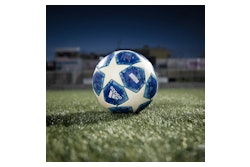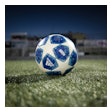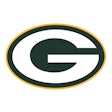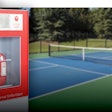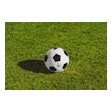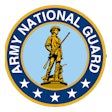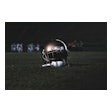Copyright 2017 Newsday, Inc.
Newsday (New York)
If not for a few inches, the Orioles' Manny Machado might have been hospitalized last Sunday. Or worse. Because once a 90-mph fastball leaves someone's hand, as it did from Red Sox reliever Matt Barnes in this case, there's no predicting the full extent of the damage when a body part is targeted.
But to truly appreciate the ludicrous nature of the payback episode involving Barnes and Machado — over an awkward slide into second base by Machado that was not meant to injure Dustin Pedroia — just rewind how the subsequent days played out.
Major League Baseball, as it regularly does in these incidents, reviewed the case and chose to penalize Barnes with a four-game suspension. OK, fine. The number of games tends to vary. The fastball missed Machado, miraculously ricocheting off his bat while steaming just behind his head. But the expectation was that Barnes would appeal the suspension — as pitchers routinely do, especially those who claim their innocence — and that it would be cut in half, or maybe have a game trimmed off. That's how the penalty-appeal process tends to function.
But Barnes, who was ejected from the game, didn't follow through with the appeal. Despite maintaining that the pitch "got away from me" after trying to "go up and in," Barnes simply accepted the punishment for a crime he insisted he did not commit.
This farcical dance has been going on for far too long in baseball, and given the high stakes for the players and MLB as a whole, putting a halt to the silly charade is long overdue.
HARM AND FOUL
What's the point of this continuing? Among the litany of baseball's "unwritten rules," the carte blanche to purposely drill someone with a baseball and unleash all the unintentional consequences of such an action — from a broken bone to a concussion to a more career-threatening injury — is ridiculous, really. Machado was extremely fortunate that ball missed his head. But let's take a look at where this all could have gone if it didn't.
Not only is Machado, a perennial MVP candidate and one of the sport's biggest names, knocked out of action by a serious injury, but it hurts the Orioles as a team, and by proxy the fans who enjoy watching him play — something MLB should care deeply about.
And what of the union? Is it tolerable to have Machado, less than two seasons from free agency, miss a large chunk of 2017 for something as stupid as retaliation? And this is all on top of worrying about the long-term health of a 24-year-old superstar.
Those are the macro concerns. But within the game itself, having Machado laid out by a Barnes purpose pitch could have cleared the benches, with the Orioles wanting to avenge their abused teammate. And if a fight ensues, who else winds up hurt? In trying to get their pound of flesh for Pedroia, the Red Sox could have set off a chain reaction that resulted in another of their own players getting injured — either in a brawl, or maybe nailed by an Orioles pitcher later in that game, or the next time the two teams meet.
That may sound like a worst-case extrapolation of the Barnes-Machado pitch, but it's definitely within the realm of possibility once somebody lights a fuse like this. The troublesome part of removing this eye-for-an-eye behavior, however, is how much it's woven into the fabric of the game.
PART OF THE GAME
After a 15-year playing career as a catcher and 11 more years as a manager, the Yankees' Joe Girardi has been witness to plenty of these episodes. He doesn't believe it should be legislated out of the game completely by harsher penalties, such as longer suspensions than the four-game ban that Barnes received.
"You have to be able to protect a player," Girardi said, referring to the notion of allowing those involved to police themselves. The crucial caveat being that "around the head is a no-no," he added.
Even with those safety guidelines, however, that can't prevent what almost happened with Barnes, who might have been trying to plunk Machado in a less dangerous spot, such as his hip or lower, and couldn't control throwing in that unfamiliar area.
Not every pitcher is comfortable deliberately aiming for a hitter's body. And that anxiety probably gets amplified under the pressure of teammates or maybe even a manager expecting retaliation.
One incident that comes to mind involved the Mets' Shawn Estes in 2002. He was faced with the task of exacting revenge on Roger Clemens for two crimes: putting Mike Piazza in the hospital with a 2000 beanball and then firing a splintered bat at him during that October's World Series.
Two years later, Estes was standing in the middle of a sold-out Shea Stadium, with the fans on their feet as Clemens walked to the plate and everyone in the building anticipating that the Rocket would get nailed.
But Estes missed him. The first pitch he threw sailed behind Clemens, about thigh-high. That brought a warning to both benches from umpire Wally Bell; Clemens tipped his cap and the storm seemingly had passed.
The Mets came away unsatisfied by Estes' whiff, even though he homered off Clemens in the Mets' 8-0 victory. While that would seem like the best revenge, there is something about the physical threat that appears to carry more weight in these conflicts.
And that's playing a dangerous game. There are only so many warning shots between serious injuries. Eventually, a purpose pitch aimed for a player's backside goes awry and breaks a wrist or elbow. Maybe worse.
In Girardi's mind, MLB has done a decent job of "cleaning up" the retaliatory attacks. And the Commissioner's Office has been vigilant about disciplinary action.
But there's no denying that all the parties involved got very lucky that nothing regrettable happened to Machado last Sunday at Camden Yards. Knowing that, baseball is better off working to prevent those scenarios in the future than staying with the status quo - and dealing with damage that, in some cases, might be irreparable.
Read More of Today's AB Headlines
Subscribe to Our Daily E-Newsletter
Terms and Conditions Privacy Policy













